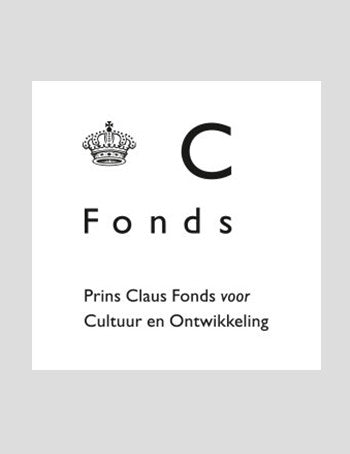
DAILY STAR
Writing Against the Machine
BEIRUT: In "Thus Spake Zarathustra," German philosopher Friedrich Nietzsche famously declared, "God is dead." This realization, he posited, is a necessary step on the path of spiritual evolution from camel to lion to child, archetypes emblematic of different mind-sets.The camel accepts life's burdens, bearing the sorrows and hardships of the world out of a sense of duty, Nietzsche wrote, while the lion rejects the dogma of religion and received ideas in favor of creating his own values. There is no peace in rebellion, however, and finally the lion must become a child, symbolic of innocence and new beginnings. The child neither accepts nor rejects religion. He simply exists.
It is this journey that provided Lebanese writer Rewa Zeinati with the title of "Nietzsche's Camel Must Die: An Invitation to Say ‘No.'" Published as part of xanadu's Maya Ghannoum Project, which aims to help young writers share their work with their Lebanese peers, the book is a collection of notes, essays and observations that Zeinati published almost daily on her Facebook page over the course of six months.
As Zeinati periodically notes, in Nietzsche's paradigm she is the lion, in the process of questioning, rejecting and rebelling against the status quo. Her short entries, originally posted for her Facebook "friends" (Zeinati is under no illusions that this group correlates to friendship in a conventional sense) and "friends of friends," cover a vast range of topics. What they have in common is their determination to see matters from a new perspective.
From the succinct opening note - a description of a tall, beautiful, well-dressed woman running after her child, followed by the words "I make a small prayer that she fall over and die" - to a passage written from the point of view of a cockroach, Zeinati spills her thoughts and opinions out on the page.
Issues surrounding women's rights and gender equality crop up frequently, explored from multiple perspectives. Zeinati's heroines are the feminists and thinkers of the Arab world who have spent their lives fighting against injustice, discrimination and inequality, from activists like Nawal al-Saadawi to Joumana Haddad (who provides a passionate foreword to the volume), to artists like Etel Adnan and Hanan al-Shaykh.
Much like these women, Zeinati speaks her mind without fear of stepping on any toes (or "camel toes," as she jokingly refers to them, in one of several references to Nietzsche and his theories).
At one point, after posting several notes critical of religion - one a satirical dialogue between a priest and a sheikh, eating Burger King and plotting how to squash the idea of civil marriage among the Lebanese population, another a letter addressed to God, which begins "I don't mean to disturb you but ... are you still on vacation?" - Zeinati writes that her "rage against religion" has offended some of her readers.
Far from backtracking, she pens a passionate response, pointing out some of the ways religion has been used to justify everything from murder to homophobia to discrimination against women.
Another entry takes the form of a letter, which opens: "Dear Hymen." Written after Zeinati read a news item about a Saudi preacher accused of raping and killing his 5-year-old daughter because he decided she wasn't a virgin, the note is filled with blistering fury, thinly veiled by a layer of overtly sarcastic rhetoric.
"You may have forgotten, but you define the sole purpose and existence of the human female," Zeinati addresses the hymen, before continuing to point out that this body part to which everyone attaches such significance might have disappeared long ago, or never existed in the first place. "Take care," she closes her letter. "And good luck becoming yesterday's news."
Other passages are humorous and light-hearted, if characteristically irreverent. One entry plays with the idea of Salafists as fashion models, a thought inspired by an article explaining that Salafists "believe in modeling ... their lives on early Islam."
Zeinati also writes about deeply personal topics, opening herself up to the scrutiny of others. One entry explores her frustration at repeated negative pregnancy tests, comparing the emotions elicited by these "failed" tests to high school exams, in which "failure is never an option."
She reveals her feelings with refreshing frankness, analyzing if her desire for a child simply stems from wanting what everyone around her has, and exploring the dichotomy between the pressures put on Lebanese women to marry and have children and the lack of infrastructure for families.
While it lacks any cohesive narrative, "Nietzsche's Camel" is an entertaining, engaging and thought-provoking read. Whether she is exploring the possibility of platonic friendship between men and women, expressing outrage at the dictionary definitions of "husband and wife" or writing about civil marriage and the divisions created within Lebanese society by religion, Zeinati is certainly never dull.
A poet, as well as a writer of prose, Zeinati's use of language is at times as interesting as the content of her notes. Always challenging the norm, she plays with conventions when it comes to writing, as well as social practices and beliefs.
"Nietzsche's Camel" will not appeal to everyone, but fans of writers such as Joumana Haddad or Hanan al-Shaykh, who consistently challenge stereotypes about women in general, and Arab women in particular, are likely to find it an interesting read.
Rewa Zeinati's "Nietzsche's Camel Must Die: An Invitation to Say ‘No,'" published by xanadu, is available now at local bookstores in Beirut.


